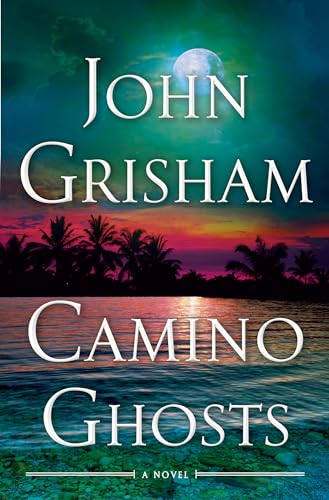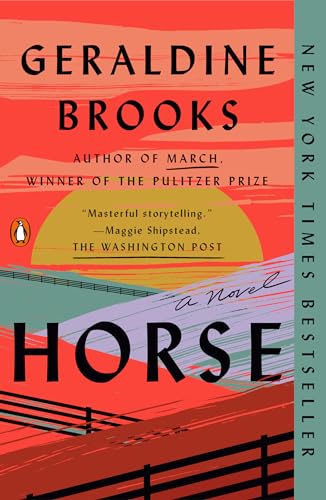(Ed. Note: Are you ready for something new? Imagine Paul Levine channeling Tom Clancy, but with a sense of humor and far, far better writing. -S.W.)
By Stephen Windwalker
© Kindle Nation 2011
 |
| Missile Silo Storyboard for BALLISTIC |
A Nuclear Missile…
A Band of Terrorists…
And Only Two People Who Can Prevent Armageddon.
And so we introduce something completely different from one of our favorite Kindle authors, suspense pro Paul Levine. Paul is providing a generous 7500-word excerpt to his new novel Ballistic this week through our Free Kindle Nation Shorts program, and in case you’re wondering how the creator of the award-winning “Jake Lassiter” series happened onto this fascinating terrain, here’s the backstory directly from Paul:
THE “BALLISTIC” BACKSTORY
By Paul Levine
 |
| Und. Facility Storyboard for BALLISTIC |
“It’s ‘Die Hard’ in a missile silo.”
That’s what my late friend Stephen J. Cannell, the writer/producer, said in the 1990’s when he read my screenplay for “BALLISTIC.”
The U.S. was just beginning to dismantle its Peacekeeper I.C.B.M.’s under a treaty with Russia. Which is what inspired “Ballistic.” I wondered: What happens to morale and discipline on an Air Force base where nuclear missiles are being removed and destroyed?
Which led to more questions: Just how vulnerable is a missile squadron to terrorist attack? What if one of the terrorists knew all about launch codes and nuclear technology? Could we be brought to the brink of World War III?
To find out, I headed to the 30th Space Wing at Vandenberg Air Force Base, where I interviewed launch command crews, ran my hands over the nose cone of a re-entry vehicle, and witnessed the test firing of a missile.
I wrote the screenplay, and for about 10 minutes, there was some buzz in Hollywood. A hot young director and big-name producer were attached, but the movie never got made. Now, I’ve written a novel based on the same story, and Kindle Nation readers get the first look.
The setup: a band of religious fanatics take over an Air Force missile silo and possess the expertise to cause a nuclear catastrophe. Will a lowly sergeant and a female psychiatrist be able to stop them?
These days, we maintain Minutemen III missiles, so the issues raised by “Ballistic” are still relevant. Just how secure are those missile bases and launch command capsules? And where is our Sergeant Jack Jericho, willing to risk all to save the world?
Here’s the set-up:
When a doomsday cult captures an Air Force missile base, it’s up to a lowly sergeant and a female psychiatrist to prevent a nuclear holocaust. That’s the set-up of “BALLISTIC,” the new loose-nukes thriller by Edgar nominated Paul Levine.
As Peacekeeper missile squadrons are shut down under a nuclear arms treaty, morale and discipline suffer.
Missile bases are ripe for terrorist attack, and it comes from an unexpected source: home-grown religious commandos who believe that a nuclear Armageddon will bring about heaven on earth as prophesied by the Book of Revelations.
One of the terrorists is intimately familiar with the technology and the launch codes. Only two people can stop the greatest disaster in the history of mankind: Sergeant Jack Jericho, who is haunted by an act of cowardice in his past, and Dr. Susan Burns, a psychiatrist trapped in the launch control capsule during routine tests of the missile crews. To prevent a nuclear holocaust, these two must work together both to defeat the terrorists and to exorcize their own demons.
It all leads to a terrifying conclusion as the command capsule computer announces: “Launch sequence in progress, confidence is high.”
That’s right. It’s time to buckle your seatbelts, because it just might be a thermonuclear night.
1
Are You Ready for the Apocalypse?
Times Square, New York City-September 1994
The young man who calls himself Zachariah blinks against the neon of a megawatt Manhattan night. Cocks his head and hears dueling symphonies in his brain. A thunderstorm of Wagner on the port side, a cannonade of Tchaikovsky to starboard.
Schizophrenia in stereo.
Zachariah steps off the curb and pulls up the collar of his trench coat. Rain pelts him. Cleanses him, he thinks, as clueless tourists and scummy gutter rats surge by on both sides. Yokels and locals. Sinners all.
Hookers in halter tops, goosebumpy in the wet chill. Gangbangers in leather, pimp-rolling, toe-walking, trash-talking skull crackers. Corn-fed, name-tagged conventioneers, heehawing across the big city, checking out the bars, Singapore slinging watery drinks at nine bucks a throw.
Lifting his face to the rain, eyeglasses steaming, he splashes through a puddle. Stops at a kiosk filled with filthy magazines. The devil’s own diaries. Creamy breasts and pouty lips. Who will save them?
Splashing through a puddle, wagging his finger at Bernie behind the counter, telling him, “All the animals come out at night.”
Bernie looks at the young man through rheumy eyes. “You’re telling me.”
Zachariah sweeps his arm across a panorama of lustful sinners. “Some day a real rain will come and wash this scum off the street.”
“How many times you seen Taxi Driver? ‘Cause I gotta tell you, Zack, it’s making you even weirder, if that’s possible.”
A radiant light amps Zachariah’s mind, a divine glow inspired by the Truth and heavenly doses of mescaline. He reaches into his trench coat and hands Bernie a pamphlet. On the cover, a drawing of an ornate temple exploding, pillars shooting into the air like flaming spears. Zachariah levels his gaze. “Pilgrim, are you ready for the Apocalypse?”
“Hell yes.” Bernie tosses the pamphlet aside. “But to tell the truth, I thought it already happened.”
***
Outside the store, the neon flashes ADULT XXX. Inside, the pot-bellied clerk with the retro sideburns hacks up a wad of phlegm, cursing the weather and his own clogged sinuses. He empties an ashtray, counting the butts, and curses himself for his three-pack a night-shift habit. He switches channels on his seven-inch black-and-white, then looks up to see a clean-cut young man stroll into the shop, trench coat spotted with rain. Wiping raindrops from his wire-rim glasses with his tie, another accountant or salesman copping a cheap thrill.
The clerk glances at the bland, nothing face. Always check them out, watch for a thug with an attitude and a Saturday night special. Trench Coat tries to flip through “Salt and Pepper Studs,” but it’s stapled shut. Peeper doesn’t even know the rules. He loops around a free-standing display of dildos and cockstraps and approaches the counter.
“If you’re looking for the video booths, they’re in the back,” the clerk says.
“My visions need no video,” Zachariah answers.
“So whadaya want, buddy?”
“Salvation for all eternity.”
The clerk shrugs. “Eternity’s expensive. We charge a quarter a minute for video. Fifty cents for live peeps. Ten bucks for the live sex theater.”
“Sodom and Gomorrah are upon us, and you, sir, are the gatekeeper of hell.”
Ah, one of those. The clerk hacks again, then spits into the trash can. For minimum wage and no health plan, why put up with this shit? “Hey, buddy, if you wanna buy…buy. If you wanna look…look. If you wanna preach, haul your ass out to the street corner.”
Zachariah pulls two quarters from a pocket. “I shall buy. But, as it is written in Revelations, ‘I know where you live. It is the place where Satan has his throne.’“
“You got that right, fella. I live in the Bronx.”
***
A whorish red sign with a flashing arrow points to LIVE PEEPS. Hallucinating now, Zachariah feels as if his feet are slogging through a wet slime, the vomit of hell. He enters a dark booth the size of a toilet stall. Latching the door, his senses hypertuned, he inhales the tang of disinfectant barely masking the ocean saltiness of semen.
Through tinny speakers, he hears the Red Hot Chili Peppers urging, “Give it away now!”
He slips the quarters into a slot. A shutter slides up and light streams through a window from the miniature interior stage where a bored stripper bumps and grinds, her backside facing a booth directly across from him. She chews her gum and pastes on a smile of slutty sincerity, smacking the other guy’s window with her mushy ass. Naked except for her red spiked heels, she dances across the stage toward Zachariah.
Come to me, Jezebel. The angels screech her name in his ear.
He steeples his fingers under his chin, studying her. A scar, fibrous and purple, jags across her belly. She is pale under the glare of the lights. Her hair is dyed a coppery red, top and bottom. Shaved into a design down below, what is it? A cross!
Blasphemous bitch. She will pay. They will all pay.
She wiggles and pouts. Then, boom! The music stops, and so does she. Stands there a moment, hip shot, then points to the tray in the window, waiting for her tip. He folds a pamphlet over twice and places it in the tray.
On the other side of the glass, she picks up the pamphlet and unfolds it, her eyes going hard as she read aloud in a Southern twang. “‘Are you ready for the Aypo-ca-lipsee?’ You think I can pay the rent with this shit?”
She looks up, ready to shame a couple of bucks out of him, but he is gone.
Zachariah climbs the stairs to the second floor. Two middle-aged men pass him on their way down, averting their eyes. Confront your sins, heathens!
He hands a ten-dollar bill to a burly Hispanic man with a ponytail and the tattoo of a snake wending across his knuckles, then enters the small theater. Four geezers are spread out, one to a row, hands disappearing into their laps, watching the stage where a naked punk is slipping it to a skinny woman on a soiled mattress.
The woman’s bare, dirty feet are wrapped around the punk’s pimply back as he listlessly pumps away. Neither makes a sound, though the mattress is wheezing, and one of the scuzzbags up front is breathing so hard, he might go into cardiac arrest.
Zachariah heads down several steps and hops onto the stage. The heavy breather in the front row huffs out a “Hey!” The couple untangles, the punk’s pecker hanging forlornly at half-mast. “It ain’t amateur night! Get outta here.”
Zachariah turns to the audience of disgruntled whackers and lets his voice slip into the sing-song of his beloved Brother David. “Babylon, mother of prostitutes, abomination of the earth, hear the Word!”
“Aw, shut up!”
“Chingate!”
“What a meshuggeneh!”
Forgiving the fools who know not what they do. “Behold a pale horse!”
The door bursts open and Snake Knuckles hauls ass toward him.
“And his rider’s name was Death!” Zachariah unbuttons his suit coat and extends his arms. Jesus on the Cross. A battery pack hangs from his belt, and packets of Semtex are taped to his waist.
Snake Knuckles leaps onto the stage but Zachariah sidesteps and calls out, “And Hell followed him!”
He pushes a switch on the battery pack…
***
At his kiosk, Bernie sees the orange flash before he hears the thunderclap. An explosion that spews glass and plaster across the street, barely missing him.
Pedestrians duck and run as the shrapnel rains down, and where there had been a tawdry little porn shop, now there is a gaping crater of flame. A hot wind sucks piles of magazines from Bernie’s counter, tumbling them down the street, plastering them against windshields, and inhaling them into the inferno.
And still no one has answered the question, “Are you ready for the Apocalypse?”
2
In the Belly of the Beast
Chugwater Mountain, Wyoming
Deep inside the missile silo, Sergeant Jack Jericho dangles at the end of a rope and pulley, a harness buckled around his waist. Above him, the sky is crystalline blue. He is a shade under six feet, broad of shoulders and shaggy of hair that has not been regulation length since basic training. He has slate-gray eyes and a nose that has been broken twice, once by a slag bucket that slipped its winch in the coal mine and once by a fist that found its mark.
Jericho pulls in rope, hand-over-hand. Closes his eyes and imagines himself scaling a lodgepole pine in a shaded forest. Climbing up the hard, scaly bark, grabbing a sturdy limb overhead. Catching the crisp scent of the high timberland. White aspens, Douglas firs, and a thicket of snowberry and juniper. Bluebells, too, sprouting out of the rocky soil of an upland clearing.
Mind over matter, it works for a moment. What had the doc called it? Creative visualization. “The mind’s eye can see whatever the brain wishes.”
Yeah, and a lot the brain doesn’t wish. Try not thinking of a brick wall. Or of a mine shaft filling with water, men screaming to the Father, the Son and the Holy Ghost.
Jericho opens his eyes, reaches up and grasps the handle of the exhaust tube cover.
He catches a whiff of the oily slickness of metal and hears the thumpa of the generators far below him in the sump. Damn. Tries to bring back the forest, tries to summon the sound of rippling water in a rocky stream. Thumpa-thumpa. Like the heartbeat of a leviathan.
He looks up. The bluest of skies is still there, visible only because the six-foot thick concrete cap is open. He looks down toward the drainage sump and the polished steel floor of the silo.
Jericho uses his legs to kick away from the silo wall, and the rope spins out of the pulley, giving him slack. He propels himself several yards, extends a soapy brush to a grimy spot on the wall, then begins scrubbing. Sweating now, though it’s a consistent fifty-eight degrees inside Chugwater Mountain. Sweating not from the heat, but the confinement, the sense that the encircling wall is closing in.
In the belly of the beast.
He breathes heavily, wiping his forehead on the sleeve of his shirt just above the three stripes. Again, he unwillingly conjures up the mine. The creak of the timbers, the explosion, the rushing water and the darkness. Then the screams, and finally the silence. The doc knew all about the dreams. Had his own from Vietnam. He was a clinical psychologist, on retainer for the union. Wore a ring in his ear, tied his hair in a ponytail. Some of the older miners called him a pansy, until they got close enough look him in the eyes. Glacial ice. Jericho didn’t want to know what those eyes had seen. He visited the doc in his office, a trailer at a job site, and asked a question.
“Will the dreams go away?”
“Scars fade but never vanish. Create your own dreams, sing your own songs.”
“I can’t go back in the ground. I need to get out of here, go somewhere far away.”
“There is nowhere far away.”
The doc had been right. Sleep came hard. Jericho bedded down with a bottle and a dreamscape of ghosts. Joined the Air Force, re-upped, and re-upped again. Now, two thousand miles from the West Virginia coal mines, he finds simple joys in the outdoors. An eagle soaring over the vast prairie, the haunting lunar landscape of a rocky basin, the startling quickness of a deer bounding through the grasslands.
Jericho finishes scrubbing the acidic residue near the exhaust tube and spins around in his harness. His job is to clean up after a test firing of the LEGG, the launch eject gas generator. Unlike other intercontinental ballistic missiles, the one with the Orwellian name of “Peacekeeper” is cold launched, propelled out of the silo by a burst of compressed gas. The solid fuel of the first stage ignites only after the missile is in the air.
Jericho drops his soapy brush into a pail built into his harness. He bristles when other airmen call him the base janitor, but even Jericho figures he is little more than the clown who follows the elephants with broom and pan. He looks up again at the brilliant sky, imagines himself in waders standing in the shallow water of a cool stream, whipping a fly toward a whirling pool where the big trout lurk. For a moment, he is out of the silo, out of the mine.
He kicks off the wall again, a little too hard, and…clang! He bangs into the nose cone of the missile that is suspended from cables, the Longitudinal Support Assembly in Air Force jargon. The cables are attached to the walls of the hardened silo, and in the event of an enemy’s nuclear strike above ground, the missile will sway, then steady itself, and be ready for launching. In theory. As with so much in the missile program, no one knows what really will happen in the event of thermonuclear war.
Seventy-one feet tall, a little less than eight feet in diameter, the Peacekeeper, or PK, is topped by a nose cone containing ten nuclear warheads. Each warhead is seventeen times more powerful than the bomb that leveled Hiroshima and ushered in the nuclear age. At this precise moment, the seat of Jack Jericho’s olive green coveralls are polishing the nose cone. With a layer of dark rubber covering the missile’s four stages, the PK is sleek, breathtaking and black as death.
Jericho winces as the metallic echo reverberates through the silo.
“Yo, Jack! You turn this place into Chernobyl, the captain’s gonna be steamed.”
Jericho looks up to see Sayers, a senior airman standing at the edge of the elevated gantry one hundred feet above the floor of the silo. Sayers wears camouflage green and loam battle dress and polished combat boots. Compared to Jericho, he looks like an ad for GQ, a muscular African-American all spit and polished. “Captain’s already steamed,” Jericho says.
“No shit, look where he put you. Hey, if I had your detail, you know what I’d do?”
“What?”
“Kill myself,” Sayers laughs.
Then he jumps.
Jericho watches a perfect swan dive off the gantry, Sayers sailing into space, his body arcing down the side of the missile toward the steel floor below. Lower, lower, a millisecond from crushing his skull, then…BOING! A bungee cord catches and springs him back up toward the gantry. He bounces twice on the cord, swinging between the missile and the wall.
“You’re next, my man,” Sayers cackles.
Jericho continues scrubbing the wall. “Only if you put a gun to my head.”
“C’mon Jack. You need some excitement in your life.”
3
Freudian Flim-Flam
Washington, D.C.
Warren Cabot, the Secretary of the Air Force, spears a slice of rare tenderloin and turns to Christopher Harrington, the California congressman with the telegenic smile and a constituency of Orange County right wingers. Outside the windows, a light rain is falling, peppering the calm waters of the Potomac. A shell glides by, worked by six women wearing Georgetown University t-shirts.
“I’m not admitting weakness, Chris,” the Air Force Secretary says. “I’m recognizing the realities of the new world order. We’re dismantling more than half our missiles under START II. Blowing up the silos and filling them with concrete.”
“I didn’t vote for the damn treaty,” the Congressman says, as if to clear the record.
“Fine, but it’s a done deal, Chris. Question now, what’s the effect on the readiness of the remaining missile crews? That’s why Dr. Burns is with us.”
Secretary Cabot gestures with a fork full of filet mignon in the direction of Dr. Susan Burns, who gives her business smile and nods, then slices her poached salmon. At thirty-four, having earned a Ph.D. in psychology with a thesis on soldiers’ response to stress in warfare and an M.D. in general psychiatry, she will let the two stags bloody each other for a while. She wears her long, dark hair up, and today she omitted the makeup and dressed in the most conservative of her blue suits. Still, she had turned the heads of the brass – their medals clinking, ribbons rustling – when she entered the Joint Chiefs Dining room.
The Congressman gives Dr. Burns a grudging nod and motions toward the uniformed steward for a second Scotch on the rocks. “I just don’t believe in sticking pins and needles in our boys to find out if they’ve ever seen their mommies naked.”
“Boys and girls,” Dr. Burns adds with a pleasant smile. “Women command launch capsules, too.”
“Not if I had anything to say about it,” the Congressman fires back. “No offense, Dr. Burns, but I don’t put much faith in all that Freudian flim-flam.”
Dr. Burns stays quiet, admiring the American eagle on the fine china, arrows in one claw, boughs of peace in the other. No use further antagonizing the man who holds the purse strings on her project to test all soldiers with access to nuclear weapons.
“For the love of mercy, Chris,” the Secretary says, “why are you such a Neanderthal?”
“Once a Marine, always a Marine.”
The Congressman is still a Colonel in the Reserves, but so what? Susan is acquainted with plenty of Marine officers who accept women as equals…or close to it.
“The Corps was fighting the British before the Declaration of Independence was signed,” the Congressman continues. “We’ve made more than three hundred landings on foreign shores.”
Not that the Congressman has landed on any foreign shores himself, Susan Burns knows, unless you counted congressional junkets to Hong Kong, Singapore and Bangkok. Now what’s he saying?
“We didn’t need women then, and we sure as hell don’t need them now, except for political expediency, and you know I don’t play those games.”
No? What about stirring the pork barrel for a California defense contractor that makes guidance systems for missiles that are being mothballed? Susan Burns could tell from the Air Force Secretary’s look that he was probably thinking the same thing.
“Our women pilots have excellent records,” Secretary Cabot says. “So do the women in support units.”
“If you ask me, we’re just appeasing the left-wing, fem-Nazi contingent.”
“Damn it, Chris! You’ve been in office so long, you’re starting to believe your own flack.
It’s a new world out there, and we’ve got to make use of all the expertise we’ve got.”
“Including lady shrinks, I suppose?”
“I vouch for Dr. Burns, and that ought to be good enough for you.”
Susan Burns stifles a smile. The old Air Force eagle still has some arrows in his quiver.
“Gentlemen,” she says, “this isn’t about me and it isn’t about women. It’s about the readiness of the missile squadrons. The enemies are monotony, boredom, and a sense of futility. Not one missileer in fifty believes he – or she – will ever turn the key. If the President ordered a strike, there’s significant doubt the missileers would fire. They’d get the launch code and think it was a computer malfunction.”
“Even if that’s true,” the Congressman says, “I fail to see how a shrink is going to help.”
“Our preliminary studies show a marked decline in alertness and discipline. We need to construct psychological profiles of the men and women in the launch capsules, compile hard statistical data, then treat the problem.”
The Congressman sips at his Scotch, then to the Secretary and waves his napkin, surrendering. “Okay, Warren. It’s your call, but if 60 Minutes comes calling about this boondoggle, I’ll refer them to you.”
The two men exchange smiles, and Susan Burns finally understands. It had all been a charade. The Congressman never intended to block the project. He merely wanted artillery cover if the news media likened the project to price supports for bull semen or thousand-dollar balpeen hammers. If that happened, Susan Burns could go back to treating bed-wetting teenagers in suburban Virginia. I’ve got a lot to learn about politics, she thinks.
A steward appears and silently slips a silver tray holding a small envelope in front of Secretary Cabot. Opening the envelope, the Secretary examines a note, his brow furrowing. “Isn’t that the damndest?”
“What?” the Congressman asks.
“You remember that break-in at the Denver Armory?”
“Yeah, the Army lost some ordnance.”
“Automatic weapons, ammunition and some obsolete land mines,” the Secretary says, looking around, then lowering his voice. “Plus enough plastiques to make the Beirut bombing look like a fraternity prank.”
“That wasn’t in the reports.”
“No, and neither will this. There was an explosion at a porn shop in New York last night.
Traces of Semtex were found in the rubble. Based on the chemical composition, it’s special Army issue.”
“So why rob an armory to blow up a porn shop?” the Congressman asks.
“Excellent question,” Dr. Susan Burns says, patting her lips with a napkin, “and I’ll bet the answer can be found with a little Freudian flim-flam.”
4
Hell’s Half Acre
The broad plains north of Rattlesnake Hills are broken by mountains and buttes rising unexpectedly from the flat earth. Wyoming is a land of contrasts. Towering mountains of granite that boiled up from inside the earth over three billion years ago. Flat prairies of wheatgrass and junegrass. Steppes covered with sweetly pungent sagebrush, the scent carried by the strong, continuous winds. On the arid badlands, eroded boulders form exotic sculptures in demonic shapes. Not far to the south, traces of wagon wheels carved into the rocks are still visible on the old Oregon Trail.
Near the south fork of the Powder River, in an area of dry buttes and rocky gullies, is Hell’s Half Acre, a canyon of eroded pink rock, forming pinnacles that could be the frozen flames of Satan himself. Three miles to the west, near a stream, is rolling ranch land. Some is fenced, and cattle graze serenely on the grasslands that are also the home to jackrabbits, cottontails and rattlesnakes. Mule deer and pronghorn antelope feed in the nearby woods.
Over a rise from the grazing cattle, farther from the stream, a man in commando fatigues uses wire cutters to snip through the bottom two strands of a barbed-wire fence. As he spreads the opening with gloved hands, eleven similarly dressed men wriggle through, belly-up, using their rifles to keep the wire from catching on their fatigues. In their wake, clouds of dust rise from the parched earth. In a moment the men are gone, and with the top wires still intact, the fence does not appear to have been breached.
The commandos flatten themselves to the ground and creep ahead through the scrubby brush, holding their M-16A2’s, official U.S. Army issue, in front of them. They move slowly in what marine rifle squads call the “low crawl.” The morning sun is in their faces, which are painted loam and light green to blend in with the surroundings. They wear Kevlar body armor and carry extra magazines of 5.56 mm. ammunition in pouches on their cartridge belts. Their helmets are covered in brown burlap.
As they move higher on the ridge, the brush becomes heavier, and the leader, Gabriel, a rock-jawed man of thirty with squinting blue eyes, cautiously stands and extends both arms away from his body at a forty-five degree angle. At the signal, the men get to their feet and move into wedge formations, a point man with three riflemen behind him. The two side units break away diagonally as Gabriel’s middle wedge moves straight up the ridge. A dozen men in all.
Gabriel raises his right hand, and his unit stops. He reaches down, brushes some leaves away from the ground, exposing a trip wire, then leads his men around a buried land mine. At the top of the ridge, he signals again, and his men halt. Gabriel crawls to a vantage point where he can see into the hollow. Using binoculars, he scans the scrubby landscape. Four hundred meters away, halfway up the slope of the next ridge, is a bunker reinforced with sandbags, mounds of dirt, and logs. Twenty meters behind the bunker is a century-old miner’s cabin of blackened logs, its walls sagging into the ground.
The target.
To get there, his men will have to work their way down the ridge, cross the dry coulee in the hollow, then work their way back up the far ridge, in direct view of the bunker.
Suicide.
Gabriel knows the lesson taught every soldier since Gettysburg: one dug-in infantry man on high ground can stop three equally armed men advancing from low ground. He signals his RTO to crawl forward and uses the radio to call the point men of the other two wedges. “We’ll lay down some hellfire from here. You’ll flank them. Thirty seconds.”
His men take positions at the top of the ridge, stretching out into the prone firing position. Two prop their rifles on bipods. “Ten seconds,” Gabriel says, then counts it down. On his command, they erupt with a blistering barrage, their weapons set on three-round bursts.
But they must have been expected, for the return fire is immediate and overwhelming.
His men flatten, grinding their faces into the ground, and for a moment, their guns are stilled. Gabriel, still standing, winces. He is a man with no fear of death. “Keep it steady!” he shouts, and his men resume firing. Good men, pious men. He prays for them to succeed, to overcome their fears.
Gabriel extends his right arm straight down, then moves it horizontally in the infantryman’s signal to fire faster. His men empty their magazines, clip in new ones and spray the hollow with shells, seldom hitting the bunker or its fortifications. They do, however, kill a lot of rocks.
So different here than on the firing range, Gabriel thinks ruefully, as the return fire zips over their heads. But his troops will learn. The firing slows as the men catch their breaths. Combat drains the adrenaline, exhausts the soldier who hasn’t learned to pace himself. “Keep it up!” he implores them. “Fire.”
At something, at anything, he wants to say. Gabriel is a generation too young to have served in Vietnam, but he has studied its history and knows the woeful inaccuracy of the infantry with the M-16A1. In many fire fights, it took an astonishing one hundred thousand rounds to inflict a single casualty. Lack of fire discipline and malfunctions. He knows that, at this moment, his men are firing wildly, perhaps blindly. He would have liked another month of training.
Gabriel peers into the hollow and a flash of movement catches his eye in the sagebrush. His riflemen see it, too. They turn and fire, finally hitting something. He watches as the brown hide of a large animal, a deer or elk tumbles into the underbrush.
Enough. If the distraction hasn’t worked already, laying down a few hundred more rounds won’t help. “Unit two, go!” he shouts into the radio. To his right, four commandos work their way down the ridge, but oblique fire from the bunker stops them just short of the coulee. They take cover behind dusty rocks in the dry riverbed. Unit two’s leader scans the left flank with his binoculars but cannot see any movement except for a jackrabbit that runs a zig-zag route away from the shooting.
“Unit three, where are you?” Gabriel demands. “Matthew, go now!”
“We’re halfway there. Relax, brother.” The voice is calm and reassuring. Halfway down the ridge, Matthew clicks off the radio as he leads his men through dense underbrush. He is tall with a thick neck and arms cabled with veins, his hands work-hardened. His men move quickly, breaking twigs, kicking over rocks, their movements masked by the blazing gunfire to their right. Speed, not stealth, is their ally now.
As they cross the coulee, the four men slide into the rectangular “echelon left” formation with Matthew at the point. They have flanked the bunker and have a clear shot up the ridge to the miner’s cabin. Moving at double-time now, with rifles at port arms, they break into the clearing twenty meters from the cabin.
Just outside the cabin door, a soldier has his back to them. He is peering down toward the bunker on the far side, his hand resting on an M-9 service pistol in a holster. They storm him, the soldier turning just in time to catch sight of Matthew slashing at his chest with a fixed bayonet. The soldier instinctively leaps backward, and the blade catches in his flak jacket. Matthew pivots and swings the rifle butt in a horizontal arc, belting the soldier across the jaw and toppling him to the ground. Two other commandos stand over him with rifle muzzles pointed to his chest as Matthew and a fourth commando burst through the flimsy cabin door.
They tuck and roll and come up in the firing position. Their rifles are pointed directly at the head of a long-haired, handsome man of thirty who sits at a redwood table reading the Bible. The man, who calls himself Brother David, calmly presses the button on a stopwatch, closes his Bible and looks at Matthew with dark, piercing eyes. “Your best time, to date, my brother. Sliced a minute thirty-five off last week’s maneuver.” His serene smile is that of a king pleased with a loyal subject. “I believe we are ready.”
Matthew takes off his helmet. His long hair is tied into a ponytail. “Perhaps two more weeks would be better.”
“God waits for no man.”
Matthew nods. His leader has spoken. “Thy will be done, Brother David.”
The soldier from outside staggers into the cabin, his chin in his hand. Blood seeps from his mouth as he approaches Matthew. “You broke my jaw,” he whimpers through swollen lips.
Brother David stands and clasps an arm around the wounded man’s shoulder. “That is nothing compared to the pain you will inflict on the army of Satan.”
5
Graveyard Shift
The sun blinks through the tree tops on a crisp Wyoming morning. Towering blue spruce and Ponderosa pines form an umbrella over the two-lane road. It is September, and the Aspens are turning gold, their round leaves fluttering, whistling their songs in the wind. A red-headed woodpecker beats out a staccato beat against a fir tree, and somewhere in the underbrush, rabbit-like pikas are squeaking their distinctive sounds.
The Air Force Jeep emerges from the forest and begins climbing through the Rattlesnake Hills. Road signs warn of moose crossings. Whitecapped mountains are visible on the horizon.
Senior Airman Sayers is at the wheel of the Jeep, Airman Reynolds next to him. Jack Jericho is sprawled across the back seat, his helmet pulled over his eyes. “Sarge asleep?” Sayers asks.
“Asleep, hungover, dead, or all of the above.” Reynolds runs a hand over his crew-cut. A freckled redhead with a southern accent, he wore his hair in a pony tail before joining the Air Force, and even now, cannot believe the stubbly bristle he finds under his hand.
“Yo, Jack! You awake?” Sayers asks.
From the back seat, an unintelligible grunt.
“C’mon Jack. Get up.”
“Leave me the hell alone.”
Sayers jerks his thumb in Jericho’s direction. “That’s what two weeks on the captain’s graveyard shift does to a man.”
“Not to mention ten years of hard drinking,” Reynolds adds.
Sayers downshifts as the grade becomes steeper. A stream runs alongside the road, clear water tumbling over rocks as old as the earth itself. Above the bank of the stream, a porcupine gnaws at the trunk of a pine tree. Across the road is a seemingly endless chain-link fence topped by razor wire. “No Trespassing” signs emblazoned with the Air Force insignia dot the fence every several hundred yards.
“Uh-oh,” Sayers says, looking toward the sky and slowing down.
“What is it, Spike?” Reynolds asks.
Sayers’ first name is Timothy, but with his round glasses and narrow face, his buddies back in Brooklyn thought he looked like Spike Lee. Before he joined the Air Force, Sayers sometimes cadged free drinks and impressed aspiring models and actresses by claiming he was scouting the neighborhood for a movie location. He still tries the scam occasionally while on leave, but less successfully. At a bar in Laramie, he discovered, the locals didn’t know Spike Lee from Robert E. Lee.
“Buzzards dead ahead,” Sayers says.
Jericho stirs and sits up, sliding back his helmet, squinting into the morning sun. He’s unshaven and his eyes are puffy. He pulls a warm can of beer from a rucksack, pops the top and puts it to his lips. He gargles noisily, spits into the road, then opens the wrapper on a Twinkie and gobbles it in two bites.
“Disgusting,” Reynolds says. “Breakfast is the most important meal of the day. Back home, I’d have hominy grits, black coffee and molasses bread every morning.”
“Hey Reynolds,” Jericho says, his voice thick from a case of the dry tongue. “If I gotta hear one more time about your momma’s eggs still warm from the chicken’s ass, I’m gonna puke.”
Sayers laughs. “Hell, Jack. You’re liable to puke, anyway.”
“I was just being friendly,” Reynolds says, pouting. “Besides, eggs don’t come out a chicken’s ass.”
Jericho ignores both of them and watches half-a-dozen turkey vultures drift in slow circles overhead. A year of perimeter maintenance duty with these two, and he still marvels at the weirdness of their conversations. Within a few minutes, they start up again.
“Hey Sayers, how many folks are there in Wyoming like you?”
“You mean handsome and manly?”
“I mean black.”
“Not many, man. Three thousand or so, not counting me.”
“That’s why there’s no graffiti.”
“There’s no graffiti ‘cause there’s nothing in this hayseed heaven to put it on ‘cept trees and rocks. Graffiti goes on underpasses and buildings in the projects, and if you got the balls, the po-lice station.”
“Yeah, well it ain’t so bad out here,” Reynolds says. “Even Jericho likes it when he’s sober.”
Now, Sayers stops the Jeep alongside the fence, then shoots a concerned look into the backseat. “More nightmares last night, Jack?”
Jericho’s grunt could be a yes, could be a no.
The buzzards are directly overhead, circling lazily in the wind currents, waiting. Now, the men see what the birds are after. A large elk with a full crown of antlers is caught in the fence, its hide bloodied from the struggle to get free.
“Never told me this Wild Kingdom shit in the recruitment office,” Reynolds complains.
“All I ever heard,” Sayers says, “was that wild blue yonder jive.” He jams on the hand brake, and the three men get out and cautiously approach the elk.
When they are ten feet away, Sayers pulls a .45 from a side holster, but Jericho seizes his wrist. “No need for that, Spike.”
Reynolds lets out a low whistle in Jericho’s direction. “It lives! It talks, it walks, it brushes its teeth with Budweiser.”
Jericho grabs a saw-toothed survival knife from a sheath on his leg. “You two cowboys back off. I’ll handle this.”
Amused, Reynolds slouches against a wooden fence post and lights a cigarette. “Here we go again. Daniel Friggin’ Boone.”
Three feet from the trapped elk, Jericho stops, the frightened animal watching him through eyes the size of half-dollars. “Hoo boy,” Jericho coos. “You are a beauty.”
Blood oozing from its wounds, the animal bucks and stomps, lifting its head until it can no longer see Jericho. With startling quickness, Jericho leaps forward, grasps its antlers, and raises his knife to the elk’s neck.
“Jeez, Jack, we coulda shot him!” Sayers calls out.
But Jericho doesn’t cut the animal. Instead, he swiftly slices away the fence wire, then gently pulls it from the elk’s hide. He reaches into his pocket and brings out a handful of tiny red berries.
“Yo, Jack!” Sayers sounds alarmed. “That ain’t Bambi.”
“Mountain ash,” Jericho says. “For pain and healing.” He crushes the berries in his fist and lets the red syrup flow into the animal’s wound. The elk stiffens but doesn’t bolt, and Jericho gently strokes the tufted hide behind its ear.
“You learn that Tarzan shit back in Stinkhole, West Virginny?” Sayers asks.
“Sinkhole. Asshole.”
The elk, which had been paralyzed with fear, seems to relax as Jericho strokes its back.
“Hey Sayers,” Reynolds calls out. “You know what a West Virginian calls a deer caught in a fence?”
“What, man?”
“His first fuck.”
The two airmen laugh.
“He’s an elk,” Jericho says.
Reynolds shrugs. “Elk, moose, Rotarian, whatever.”
“Yo, Jack,” Sayers says. “How come you didn’t stay home and marry a coal miner’s daughter?”
Jericho steps back, and the elk bounds away, heading for the woods.
“Or your sister?” Reynolds chimes in.
It happens with electric speed.
Jericho whirls, and the knife flies from his hand toward Reynolds’ head. With a solid thwomp, it sticks in the fence post just inches above Reynolds’ crew cut.
Speechless, Reynolds reaches up to feel his scalp as the knife, buried deep in the wood, vibrates like a tuning fork.
“Shit man!” Sayers yells. “You’re crazier than the boys in the ‘hood.”
Jericho walks to the fence post and pulls out the knife. “My sister’s the only family I’ve got left.”
Then he walks away, watching the elk disappear into the woods, admiring its majesty, envying its freedom.
Sayers and Reynolds exchange baffled looks. From their hours of endless banter, they know Jericho is a loner. Until now, he had never said a word about his family or his life before the Air Force. Then the same thought occurs to each of them. They really don’t know Jack Jericho at all.
6
Baptism of Beer
A few miles from the ranch where Brother David’s warriors of God live and train is the town of Coyote Creek. A tavern, a general store, a gas station, a rod and gun shop, a few dozen weathered wooden houses. Little to do, other than the annual rodeo.
Inside the Old Wrangler Tavern, an elk’s head is mounted on the knotty pine wall above a scarred mahogany bar, the antlers serving as a rack for cowboy hats, hunting caps, and even a jock strap. A bartender with a walrus mustache and an enormous stomach draws beer from a tap whose handle is the plastic form of a naked woman.
Half a dozen ranch hands and loggers stand at the bar, hands wrapped around mugs of beer. They are a scruffy, bearded lot, in soiled jeans and red plaid shirts, a few of the younger guys with bandannas on their heads instead of cowboy hats.
Above the bar, a TV is tuned to CNN where a blond female reporter stands in front of a gutted building breathlessly jabbering into a microphone. “The FBI reports no leads in the latest porn shop bombing. Tuesday’s explosion in New York killed five and injured thirteen. Like the earlier blasts, no group has claimed credit for the attacks.”
The bartender wipes the bar with a wet towel and shakes his head. “Why blow up a jerk-off joint?”
“A political statement,” says one of the bandanna guys. “A protest.”
The bartender barks a laugh. “Protesting pussy? You want a political statement, blow up the I.R.S.”
The others murmur their agreement. “The I.R.S. can listen to your phone calls,” says one of the grizzled men.
“Not only that,” another says. “Every car manufactured after 1979 has a computer chip built in. A bureaucrat in Washington hits a switch, and your engine will stop dead.”
“That why you still drive a ‘78 Chevy pickup, Will?” another guy says, laughing.
“Yeah, and it’s why I keep my thirty-ought-six in the gun rack with five thousand rounds of ammo and provisions for six months under the barn. When the revolution comes, I’ll be ready.”
“Me too,” the bartender says. “I got two dozen kegs of Coors in the shed out back.”
Which sets the others to laughing. Will turns toward a long-haired man standing alone at the end of the bar. The man is lean and muscular and wears a blue chambray shirt and khaki pants. “What about you, fellow? You think there’s going to be a second revolution?”
“A Second Coming,” Brother David says. “The angel poured out his bowl on the sun, which scorched people with fire. They cursed the name of God and refused to repent.”
“What the hell?”
“Revelations, chapter sixteen, verse eight. It is the Word.”
Will studies the man, decides there’s no use going down that road. His ex-wife was a Bible-thumper, used to drive him crazy. “Well, the Word’s making me thirsty.” He motions to the bartender for a refill.
No one moves to join Brother David at the end of the bar. He sips a cup of coffee and resumes watching television. On the screen, an anchorman with gray hair and a somber tone begins to speak, and the screen goes to a videotape of the President shaking hands with several men in the Rose Garden. “At the White House,” the anchorman says, “the President welcomed the United Nations Nuclear Non-Proliferation Commission, which today begins a tour of U.S. missile bases scheduled to be shut down under the START II Treaty.”
The bartender tosses his towel in the direction of the sink. “What bullshit! Business ain’t bad enough, they gotta pull out the Air Force.”
“See, I told you so!” Will puts down his freshly poured beer. “First the missiles, then our rifles. The U.N. and the Trilateral Commission are gonna confiscate our guns and give them to the Zulus and the Zionists.”
Brother David walks to a nearby table and sits, joining a younger man who nurses a bottle of beer and a woman who holds a cup of coffee, gone cold. There is an air of peacefulness, of knowing calm, about Brother David, who smiles placidly. “Hello, Billy. Rachel. May the glory of God be with you.”
“Thank you for coming, Brother David,” Billy says. Neatly dressed in jeans and an open-collar shirt, he is a baby-faced, twenty-four year-old with rimless glasses and pale blond hair. “I’ve looked to the Lord for answers, just like you said. But…” Tears form in his eyes. “There aren’t any answers. Not for me, anyway. Kathy said she’d wait for me, and now she’s going to marry my best friend, and…” His voice takes on a pathetic whine. “I’m stuck out here in the woods for another six months. What can I do?”
Rachel leans across the table and gathers Billy’s hands in her own. In her late twenties, she wears no makeup and hides her figure under a shapeless granny dress. “Brother David understands, Billy. He loves you. He’ll take care of you. And so will I.”
Brother David stares hard at Billy, then squeezes his eyes shut, beads of sweat forming on his forehead. When he speaks, his voice is a whisper, “I see a quiet house. In the Midwest, I believe. There is a child, just one, a little boy, but no man there. Still, the house has the feel of a man. In the closet, there is a uniform, as if he might come back.” He pauses a moment, takes several deep breaths, and continues, “There is the sense of loss. Was your father killed in the service?”
Billy’s lower lip trembles. “No, but he was in the Army. He left my mother. And me. He never came back.”
David’s gaze seems to trace an outline around Billy. “Your auric fields are weak. There is purple and gold, and that’s good, but the colors are muddy, not vibrant. You are unsure, misunderstood, still in the process of awakening, and are not appreciated for what you have to offer.”
“Yes,” Billy says excitedly. “Yes, it’s all true, but can you help me?”
Suddenly, Brother David grabs Billy’s beer bottle and slams it on the table. Foam erupts and streams down the long neck. David dips an index finger into the pool of suds that surrounds the bottle. He reaches across the table and draws the sign of the cross on Billy’s forehead, then touches the tip of his finger to Billy’s lips. “Drink of my blood.”
Billy takes Brother David’s finger into his mouth as an infant would his mother’s nipple.
He stares, wide-eyed at the man he considers the Savior. David rewards him with a beatific smile, then withdraws his finger. He grabs Billy’s head, cupping his hands around the base of his skull. “Do you seek everlasting life?”
It isn’t a question so much as a demand. Billy can’t say a word, but he nods against the pressure of David’s hands.
“Good, William, good. Because you, Lieutenant William Riordan of the United States Air Force. You hold the key. And only I can turn it.”
Continued….
* * *
Want to continue reading?















